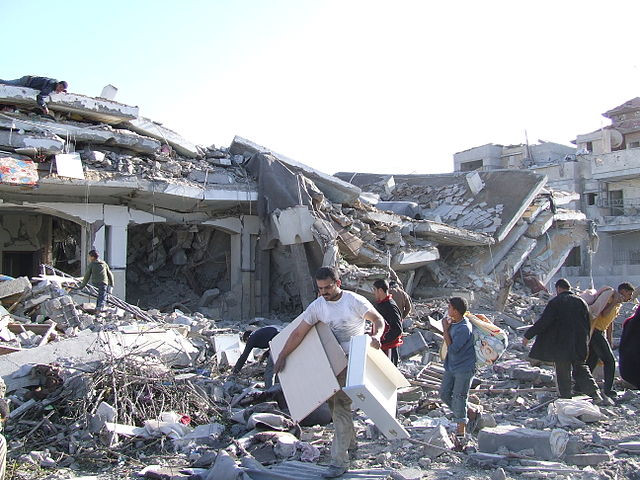At least 16 people, including five women and four children, were killed in a series of Israeli airstrikes on Gaza Sunday night and Monday morning, according to Palestinian health officials. The strikes come amid escalating tensions and continued violence in the region, which has seen over 41,000 Palestinians lose their lives since the conflict began nearly a year ago.
The deadliest of the recent airstrikes hit a residential building in the Nuseirat refugee camp, located in central Gaza. Rescuers reported that the early Monday morning attack obliterated the building, killing at least 10 people. Among the dead were four women and two children, with hospital records confirming the identities of a mother, her child, and her five siblings. The al-Awda hospital, which received the bodies, stated that another 13 individuals were wounded in the strike.
In a separate incident, a strike on a building in Gaza City resulted in the deaths of six more people, including a woman and two children. These strikes underscore the ongoing tragedy in Gaza, where civilians are frequently caught in the crossfire of the intense military operations.
The Israeli military has maintained that its operations are directed exclusively at combatants, accusing Hamas and other armed factions of endangering civilians by operating within densely populated residential areas. However, the toll on civilian lives continues to mount, raising international concerns over the humanitarian impact of the conflict.
The conflict, which began with Hamas's 7 October attack on Israel, has resulted in significant loss of life and displacement in Gaza. The Palestinian Health Ministry reports that the current death toll in Gaza represents nearly 2% of the prewar population, with the majority of casualties being civilians. Meanwhile, Israeli forces continue to target militant positions, arguing that they are necessary measures to dismantle Hamas's military capabilities.
On Sunday, a senior Hamas official, Osama Hamdan, spoke to Agence France-Presse in Istanbul, claiming that despite heavy losses, Hamas has been able to recruit new fighters and continues to pose a significant threat to Israel. Hamdan pointed to a recent missile strike on central Israel, reportedly launched by Yemen's Houthi rebels, as evidence of Israel's vulnerability.
"This is a message to the entire region that Israel is not an immune entity," Hamdan said, emphasizing that Israel's aerial defense systems have their limits. The Israeli military is currently investigating whether the missile successfully penetrated its defenses or if the resulting fire near Kfar Daniel was caused by falling fragments from interceptor missiles.
In response to the escalating attacks, Israeli Prime Minister Benjamin Netanyahu warned that the Houthis would pay a "heavy price" for their actions. The Houthi leader has since warned of more significant attacks to come, further heightening tensions in the region.
Meanwhile, Israeli Defense Minister Yoav Gallant expressed growing concerns over the situation on Israel's northern border with Lebanon, where Hezbollah has been launching rockets and drones into northern Israel. Gallant told U.S. Defense Secretary Lloyd Austin that time was running out for a peaceful resolution with Hezbollah, which he claims is increasingly aligning itself with Hamas.
Gallant emphasized that Israel would continue its operations against Hamas and ensure the return of hostages held by the group in Gaza. He also hinted at the possibility of a broader military campaign if Hezbollah's attacks persist.
The situation has placed additional pressure on Netanyahu's government, with reports suggesting that Gallant's position may be under threat. Rumors of his possible replacement have circulated for months, reflecting the deepening internal conflicts within Israel's leadership as the nation grapples with the ongoing violence and diplomatic challenges.




